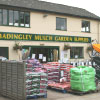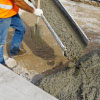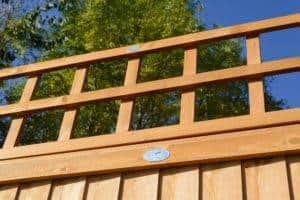Top Tips on Preparing Your Garden Fencing for Winter
This article looks at the steps you should take to protect your fence panels over the colder, wetter winter months. These can be split into three main areas – cleaning them, carrying out any running repairs, and finally checking the surrounding area.
Madingley Mulch stock a number of products which can help ensure your fencing looks just as good in the spring as it did in the autumn.
Summer is definitely over – Storm Benjamin hit large parts of the UK in October, and winter can’t be too far away either. One of your garden items which could be most at risk from the vagaries of the British weather is your garden fencing.
Here, Madingley Mulch provide some top tips to ensure that your panels stay in good condition whatever the weather throws at them over the next few months.
Garden Fencing in Cambridge from Madingley Mulch
At Madingley Mulch, we supply a full range of garden fencing – including lap panels, picket fences and trellises – as well as a large selection of accessories which will help with any running repairs. All our fencing products can be found here.
Clean Everything
Pick a dry day or weekend with a good weather forecast. Remove dirt, moss, mildew, and grime from the panels, using either a stiff wire brush or a pressure washer on a gentle setting. For stubborn dirt, use a mild soap and water solution and scrub gently. Then let everything dry thoroughly – at least overnight.
Then you can apply any new sealant or varnish. You may need to apply a second coat after the first has dried, depending on the original condition of the fence. A good way to check if your fence needs sealing is to spray water on it; if the water sinks in, you still need another coat.
Carry Out Running Repairs
Look for any damaged, loose, or missing boards and repair or replace them. Check fence posts too, as these can be the most vulnerable part of the fencing, as they can easily rot or become unstable over time. If they are leaning, re-secure them and ensure they are firmly fixed in the ground. Finally, secure any loose brackets or screws where your panels are attached to the posts.
Clear the Surroundings
Sometimes it’s not just the fence that needs attention, but the area surrounding it. Remove any debris, such as leaves, which could build up at the base, as trapped moisture could damage the timber. Larger weeds should be uprooted because these could make the whole structure less stable over time, as well as being unsightly.
Some of the plants which you do want to encourage should also be pruned ahead of the winter months. Any branches on nearby shrubs or overhanging trees could easily fall off in a storm and damage the panels.
Another safety tip is to improve the drainage, as you don’t want water to pool around the fence posts. Dig a trench or French drain which slopes away from the fence line and will carry away any excess moisture into a soakaway or the street. The problem of moisture can also be lessened by adding gravel boards to your fence, as these will raise the panels clear of the soil.
Finally, you can improve the nearby soil’s overall structure and drainage by adding compost, mulch or other organic matter.
Fencing Products and Accessories from Madingley Mulch
At Madingley Mulch, we stock a range of items which can help with your fence maintenance. These include replacement items – not just the panels, but also the posts, post mix and Metclip brackets to fix panels and heavy-duty trellises to your posts. If you need to revarnish your panels, then we stock Cuprinol and Ronseal preservatives (including environmentally friendly options).
One of our specialities is soil conditioners, composts and mulch, which we provide to customers in Hertfordshire, Essex and Suffolk as well as our home county of Cambridgeshire. These will help improve your garden’s drainage and soil structure – the conditioners and composts can be found here, while the mulches are here.
We also have gravel boards, which will prevent rotting and greatly extend the life of your fencing. And, to help with any pruning of any surrounding plants, we also stock a range of garden tools from leading brands.
If you have any questions, call us on 01954 212144 or drop in at our base on the edge of Cambridge.
FAQS:
Q: Is it better to replace individual fence panels or entire sections?
A: It is better to replace individual panels for minor damage, but replacing whole sections is best for widespread damage, failing posts, or older fences to ensure longevity and uniformity. Remember, short-term repairs won’t fix a long-term problem – it may be cheaper in the long run to replace entire sections.
Q: Whose responsibility is a fence when it’s shared with a neighbour’s property?
A: A shared fence, also known as a “party fence,” is a joint responsibility of both neighbours for maintenance, repair, and replacement. To determine this, check your property’s title deeds or title plan for a “T” or “H” mark on the boundary line. If the mark is on your side, you are responsible for that fence; if on the neighbour’s side, they are; if the mark is on both sides, it’s a shared fence.
If your deeds are unclear, try to reach a compromise with your neighbour, as they are jointly responsible.
If you are going to carry out some running repairs, it’s a good idea to let the neighbour know, even if it’s your responsibility – just as a courtesy.
Q: Can we deliver your garden fencing order if you don’t live that close to Cambridge?
A: Yes – but your order must be to the value of £50 or more. We operate a sliding scale of deliveries; the closer you live to our base, the cheaper it will be. For more details, see our deliveries page. If you live more than 40 miles away, call our shop staff for a tailored quotation.
Back to blog




